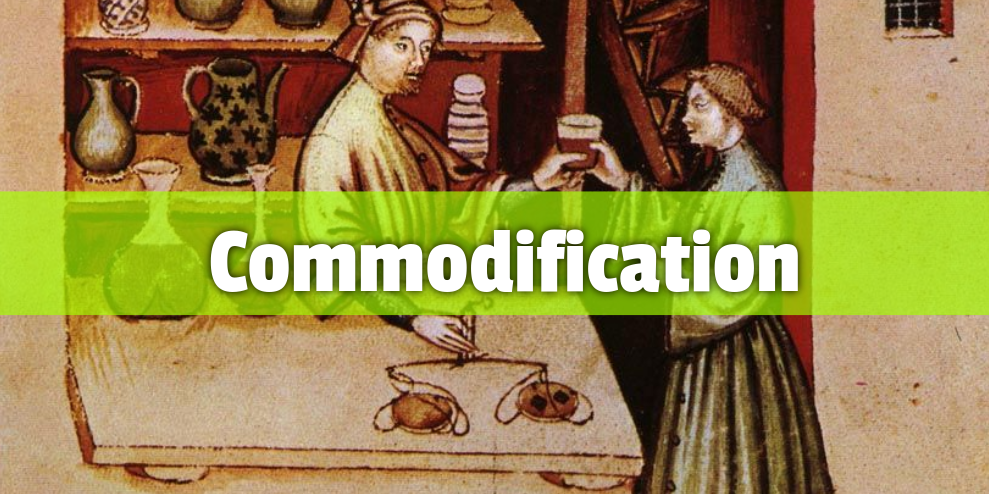Commodification

Historical process of market expansion through the transformation of social relations and the production of goods into commodities.
Commodification and the market
From its very basis, capitalism is a huge commodifying process. It begins with the conversion of land and agricultural labor into commodities, the end of communal lands and the development of agricultural productivity. From there, all the development and expansion of rising capitalism will take the form of a generalized commodification of existing social relations.
Wherever it has seized power, the bourgeoisie has destroyed feudal, patriarchal, idyllic relations. The variegated feudal bonds that tied man to his "natural superiors" have been mercilessly torn apart so that no other bond between men remains than the cold interest, the cruel "cash payment". It has drowned the sacred ecstasy of religious fervor, chivalrous enthusiasm and petty bourgeois sentimentality in the icy waters of selfish calculation. It has made personal dignity a mere exchange value.
It has replaced the many freedoms that have been written down and acquired by the one and only soulless freedom of trade. In a word, instead of exploitation veiled by religious and political illusions, he has established open, shameless, direct and brutal exploitation.
The bourgeoisie has stripped off its halo from all the professions that were hitherto considered venerable and worthy of pious respect. It has made the doctor, the lawyer, the priest, the poet, the man of science its paid servants.
The bourgeoisie has torn away the veil of emotionalism that covered up family relationships, and has reduced them to simple monetary relationships.
Karl Marx, Frederick Engels. Manifesto of the Communist Party, 1848
The development of the market will have an "inward" dimension, as a generalized commodification of social relations, and another as an overseas expansion of the market. From the English invasions of the Rio de la Plata to Commodore Perry forcing Japanese trade openness, each expansion of the world market will set in motion or accelerate the commodification of relations in each place, sometimes starting almost from scratch. During British expansion, in vast regions where not even a marginal market existed, such as much of Africa, the entire weight of the state was focused on forcing the imposition of wage labor -necessary to create surplus value, which is the objective of capitalism- through taxes on communities that were to be paid in the colonizer's currency. The only way to get currency was to work on the new plantations created by the first colonization companies. The extra-economic violence of the tax thus imposed the cycle of capitalist production and accumulation in the form of a forced commodification of labor, which until then had been a direct application of human ability and force on nature, to become labor power, a commodity that is exchanged for its equivalent in money before a buyer endowed with equal formal rights in the process of buying and selling.
http://dictionary.marxismo.school/Commodification